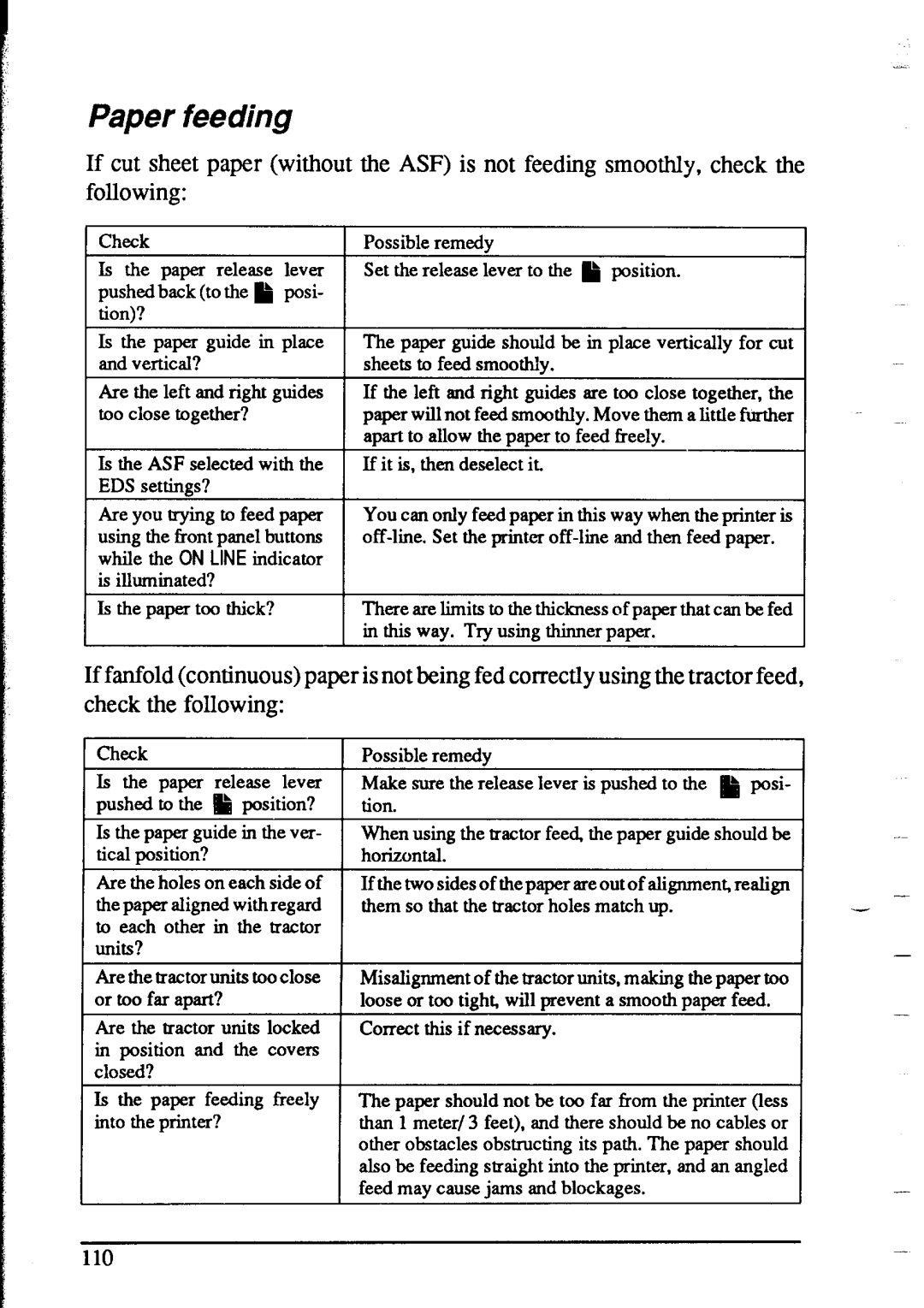
Paper feeding
If cut sheet paper (without the ASF) is not feeding smoothly, check the following:
Check |
|
|
| Possible remedy |
Is the | paper | release | lever | Set the release lever to the C position. |
pushed | back | (to the c | posi- |
|
tion)? |
|
|
|
|
Is the paper guide in place and vertical?
Are the left and right guides too close together?
The paper guide should be in place vertically for cut sheets to feed smoothly.
If the left and right guides are too close together, the paper will not feed smoothly. Move them a little further apart to allow the paper to feed freely.
Is the | ASF selected with the | If it is, then | deselect it. |
|
| |
EDS | settings? |
|
|
|
|
|
Are you trying to feed paper | You can | only feed paper | in this way when | the printer is | ||
using the front panel buttons | Set | the printer | feed paper. | |||
while the ON LINE indicator |
|
|
|
|
| |
is illuminated? |
|
|
|
|
| |
Is the paper too thick?
There are limits to the thickness of paper that can be fed in this way. Try using thinner paper.
If fanfold (continuous) paper is not being fed correctly using the tractor feed, check the following:
Check |
|
|
|
|
| Possible remedy |
|
|
|
|
|
| |||
Is | the | paper | release | lever | Make | sure the release | lever | is pushed | to the | L | posi- | ||||
pushed | to the | k | position? | f | tion. |
|
|
|
|
|
|
|
| ||
Is the paper guide | in the ver- | When | using | the tractor | feed, the paper | guide | should be | ||||||||
tical position? |
|
|
|
| horizontal. |
|
|
|
|
|
|
| |||
Are | the holes | on each | side | of | If the two sides of the paper | sre out of alignment, | realign | ||||||||
the paper aligned | withregard | them so that the tractor holes match up. |
|
|
| ||||||||||
to each other in the tractor |
|
|
|
|
|
|
|
|
| ||||||
units? |
|
|
|
|
|
|
|
|
|
|
|
|
|
| |
Are the tractor | units too close | Misalignment | of the tractor | units, making | the paper too | ||||||||||
or too far apart? |
|
|
| loose or too | tight, will | prevent a smooth | paper | feed. | |||||||
Are | the | tractor units | locked | Correct | this | if necessary. |
|
|
|
|
| ||||
in position and the covers |
|
|
|
|
|
|
|
|
| ||||||
closed? |
|
|
|
|
|
|
|
|
|
|
|
|
|
| |
I
I
Is the paper feeding freely | The | paper should not | be | too far from | the | printer (less | |
into the printer? | than | 1 meter/ 3 | feet), | and | there should | be | no cables or |
| other obstacles obstructing its path. The paper should | ||||||
| also | be feeding | straight into the printer, | and an angled | |||
| feed | may cause | jams | and blockages. |
|
| |
110
